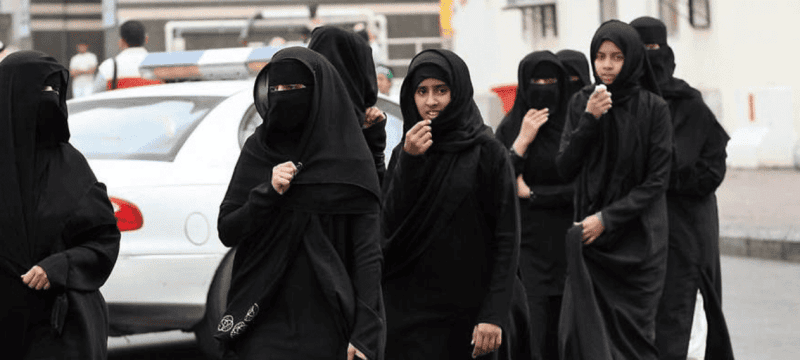In a move that has ignited a fiery debate about secularism and religious freedom, French authorities have announced a ban on the wearing of “Abayas,” also known as Islamic hijabs, in schools. This decision comes amidst France’s longstanding commitment to strict secular laws, which aim to keep religious affiliations separate from the public sphere.
Read More: Nigerian artist launches Hijarbie for Muslim fashion
France’s Education Minister, Gabriel, made the ban official in a televised statement on TF1. He emphasized that it would no longer be permissible to wear Abayas in schools. Clear instructions regarding this ban are set to be issued to school authorities across the nation as classes resume on September 4.
This contentious decision follows months of impassioned debate surrounding the wearing of Abayas within French schools, where women have long been prohibited from wearing the Islamic hijab. While right-wing and far-right activists called for such a ban, voices from the left argued that it would infringe upon citizens’ freedom.
Reports suggest that the trend of wearing Abayas in schools has been on the rise, leading to heightened tensions between parents, teachers, and educational authorities. Describing the Abaya as a religious symbol, Minister Gabriel stated that secularism in France aims to ensure that schools provide an environment where individuals are free from religious influence.
“When you enter a classroom, you should not be able to discern the religion of students based on their attire,” he declared. The move aligns with the March 2024 law, which prohibits students from wearing clothing or accessories that display religious affiliation, including large crosses, Jewish skullcaps, and Islamic scarves.
Notably, the Abaya has not previously faced a specific ban in French schools. The Ministry of Education did release a circular on the issue in November of the previous year, raising concerns over the garment’s increasing presence.
In response to the ban, former Education Minister Pop expressed reluctance about publishing a catalog to define the length of dresses. On the other hand, at least one union leader, Bruno Babkiewicz, welcomed Gabriel’s announcement.
Meanwhile, right-wing opposition member Clementine Otten decried the decision as a “clothing policy” and claimed that it was “unconstitutional.” Otten argued that it contradicted the fundamental principles of secularism in France and amounted to the government’s “rejection of Muslims.”
The ban on Abayas in schools has reignited the ongoing debate about the balance between secularism, religious expression, and individual freedoms in France. It remains a polarizing issue, sparking discussions about the boundaries of state intervention in religious matters and the rights of religious minorities in the country.









